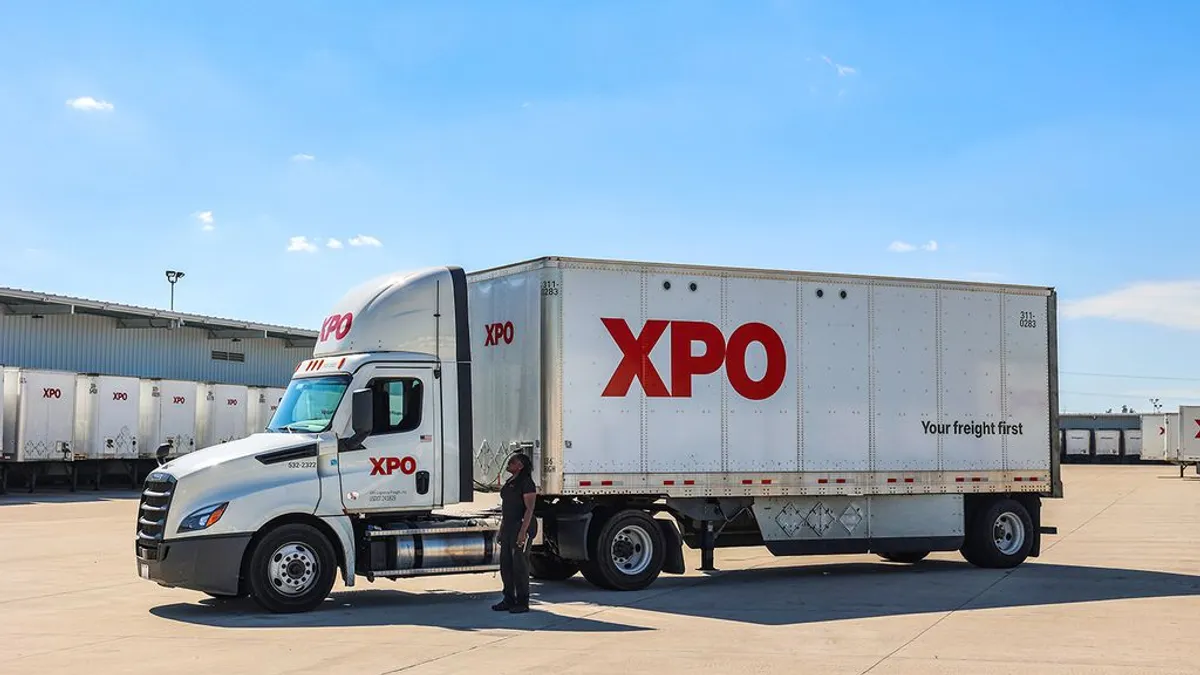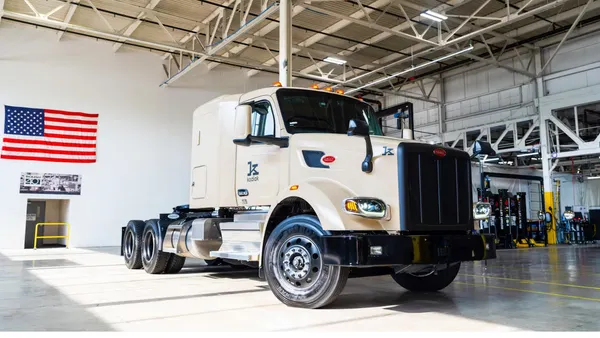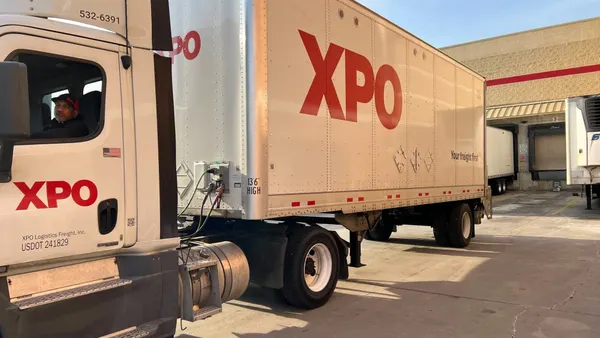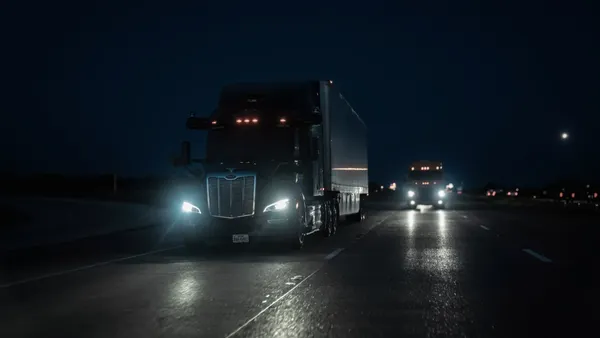Dive Brief:
- XPO Logistics has completed a virtual reality training pilot for its LTL employees, the company announced last week. The tool combines XPO software with Oculus for Business headsets "to train cross-dock workers in the optimal method of loading freight for delivery," the company said.
- The pilot identified benefits, including higher productivity, reduced waste and increased safety, as well as "shorter ramp-up times" for new trainees, XPO said. The method will be tested at additional LTL service centers in the coming weeks, according to the release.
- XPO which also uses augmented reality in other parts of the company, said it plans to expand the use of VR training in "areas such as diversity and inclusion training and remote selling."
Dive Insight:
Analysts have been predicting a rise in VR and its use in training, specifically. According to a survey from the World Data Forum, 66% of U.S. companies are planning to adopt augmented reality and VR by 2022.
In XPO's pilot, cross-dock workers were provided with a virtual environment to demonstrate loading procedures that can help mitigate freight damage, according to the release. "Employees learn how to make the best use of their time and the company’s fleet, while taking safety into account," XPO said. LTL cross-dock operations load some 25,000 trailers a day, according to a statement by XPO Chief Information Officer Mario Harik.
Amid the coronavirus pandemic, adoption of learning technology and e-learning has increased and VR represents one of the opportunities to deliver effective training to distributed workforces. Hilton has used VR to train hotel employees. VR and AR technology can also enable employers to improve inclusion by increasing accessibility and is also increasingly being used in the recruiting process.
In a recent opinion piece for Transport Dive sister publication HR Dive, Booz Allen Hamilton leader Sandra Marshall pointed out that a wide range of companies are using VR for training, including healthcare, manufacturing, military and others that operate complex machinery at work.
Marshall added that VR is ideal for tasks that are "repeatable and experience-based" and the technology also offers the benefits of data collection and scalability.
Under XPO's spinoff plans, global LTL and transport broker operations will be a separate company from contract logistics. One of the benefits of splitting is the ability to develop more proprietary technology, XPO said.











